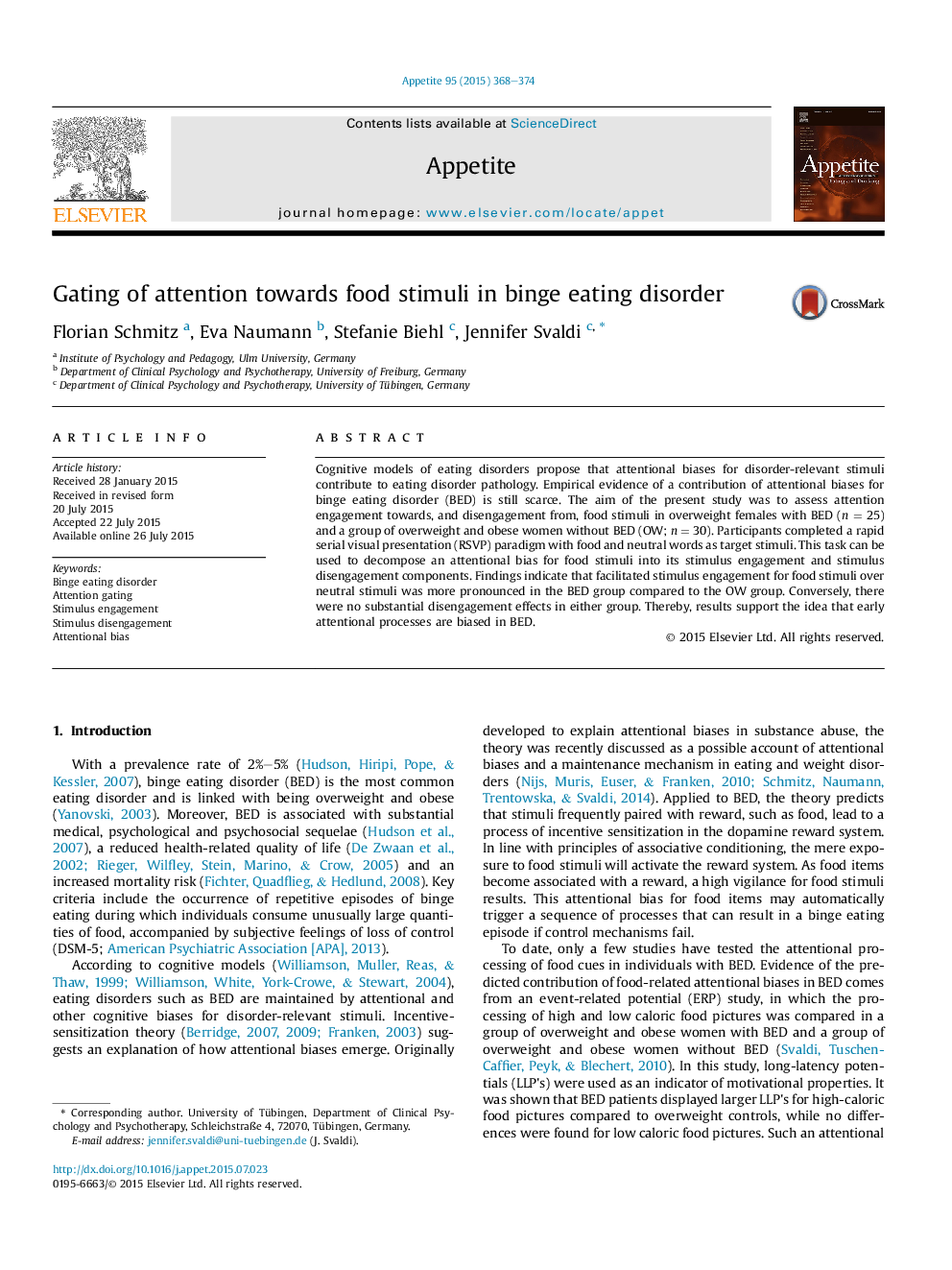| Article ID | Journal | Published Year | Pages | File Type |
|---|---|---|---|---|
| 7308664 | Appetite | 2015 | 7 Pages |
Abstract
Cognitive models of eating disorders propose that attentional biases for disorder-relevant stimuli contribute to eating disorder pathology. Empirical evidence of a contribution of attentional biases for binge eating disorder (BED) is still scarce. The aim of the present study was to assess attention engagement towards, and disengagement from, food stimuli in overweight females with BED (n = 25) and a group of overweight and obese women without BED (OW; n = 30). Participants completed a rapid serial visual presentation (RSVP) paradigm with food and neutral words as target stimuli. This task can be used to decompose an attentional bias for food stimuli into its stimulus engagement and stimulus disengagement components. Findings indicate that facilitated stimulus engagement for food stimuli over neutral stimuli was more pronounced in the BED group compared to the OW group. Conversely, there were no substantial disengagement effects in either group. Thereby, results support the idea that early attentional processes are biased in BED.
Related Topics
Life Sciences
Agricultural and Biological Sciences
Food Science
Authors
Florian Schmitz, Eva Naumann, Stefanie Biehl, Jennifer Svaldi,
